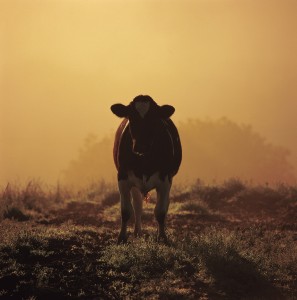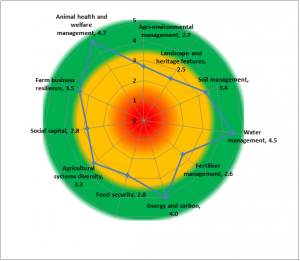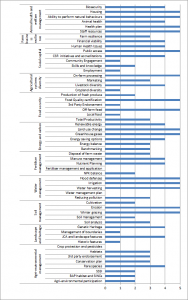Rapid Sustainability Analysis
An important initial step in addressing the development of more sustainable dairy farming in the SOLID project has been to gain a better understanding of commercial organic and low input farms in terms of their current environmental, social and financial sustainability. This was achieved by undertaking an assessment of 102 farms in 9 countries, involving farms from the SMEs involved in SOLID.
Sustainability means different things to different people. Our aim has been to take a comprehensive view encompassing environmental, social and financial objectives, including the sometimes overlooked areas of animal welfare, role in the community and farm diversity as well as the more commonly stated objectives of profitability and yield.
The Rapid Assessment Tool was developed by the Organic Research Centre (The Public Good Tool) and was modified for the use in this project. It provides a simple, measurable and accessible way to begin the process of examining the sustainability of a farming system and its management, for both organic and low input farms. It usually takes half a day to undertake the farm assessment.
The individual farm is assessed through a combination of quantitative and qualitative measures over a given time period under 11 headings. The tool assesses the individual farm wherever possible, not merely the standards to which it conforms by using several indicators for each objectives. For example, a nutrient budget is calculated which gives a guide as to whether there is a nutrient deficit or surplus across the farm. Under animal welfare, it asks about rates of mastitis and lameness in the herd as well as more qualitative, subjective questions e.g. about ability of the livestock to perform natural behaviour; the farm’s energy use is compared to standard benchmark data.
A cobweb (radar) diagram demonstrates the results of the assessment and can be quickly understood by the farmer. See below.
Within the SOLID project the assessment was undertaken on 102 farms providing a starting point for discussion of strengths and weaknesses of the farms. The results are being used to inform research priorities in the project, building on those innovative practices already being used by farmers and addressing some of the significant shortfalls in other areas, such as feed self sufficiency.
- Case farms, Denmark
- Case farms, Romania
- Case farms, Austria
- Case farms United Kingdom
- Case farms, Greece
- Case farms, Spain
- Case farms, Finland
Beyond the SOLID project, the tool has great potential as an advisory tool to help to demonstrate how a farm is doing, to identify priority areas for improvement and assess changes over time. Such assessment and benchmarking provides a measurable and effective means of delivering more sustainable farming.
Mark Measures mark@organicadvice.org.uk
Organic Research Centre, Hamstead Marshall, Newbury, Berks RG27 0HR
Example farm results
Cobweb (0 is poor performance, 5 is good)
Parameters assessed for each objective
Learn more about sustainability assessment on the STOAS project homepage




